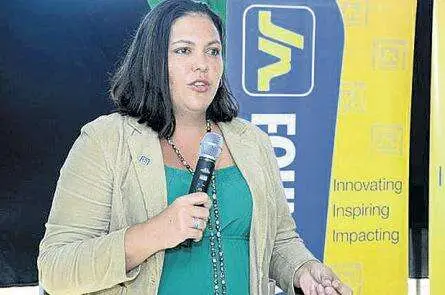
Social enterprise: Corporates making returns on philanthropic spending
SOCIAL enterprise has gained interest among a few companies wanting to increase the impact of their corporate social responsibility.
They make money from selling goods and services in an open market in order to re-invest their profits back into the local communities.
There has been a transformation from welfare to mission driven, self-sustainable organisations that will have a greater impact on the communities while generating income, according to K’adamawe K’nife.
The head of the Office of Social Entrepreneurship (OSE), Mona School of Business and Management at the University of the West Indies figures that an overarching framework that guides these activities has not been standardised, but their efforts and impacts are already being seen.
“Out of necessity people are operating social enterprises and don’t know it,” said K’nife.
Indeed, foundations are looking at the areas that have the greatest impact when it is investing in a social cause.
As a corporate entity, you have to look at your return on investments, said Kerry-Jo Lyn, programme manager, community development at the Digicel Foundation.
“It’s more than just giving money; it’s about the social return — the number of jobs created,” she said. “In these times when money is hard to come by, we must invest it wisely and invest it where it is needed most.”
Some organisations go even further.
JN Foundation won’t fund projects that aren’t sustainable.
“If you can’t show what will happen in the next five years, it makes no sense”, said Saffrey Brown, general manager of JN Foundation, the philanthropic arm of the Jamaica National Building Society (JNBS). “There have been extensive programmes where centres have been built and were later shut down because there was no thought into how it will operate.”
The philanthropic arm of the Jamaica National Building Society (JNBS), in collaboration with the United States Agency for International Development (USAID), aims to mobilise increased employment, investment and revenue within communities across Jamaica, by transforming social enterprises into efficient businesses.
The organisation, which started using the social enterprise model in 2007, plans to shepherd 11 projects through to 2015 under its Social Enterprise Boost Initiative (SEBI), following its orientation in July.
Just over a year ago, Digicel Foundation started engaging with social enterprises, in the area of community development, although it still focuses on education and special needs.
Having assessed the social value chain, and accepting that as a corporate entity the telecommunications company cannot do everything as it relates to the national development goals, Digicel Foundation looks at its niche, according to Lyn.
More specifically, it looks at enterprises that have already put in place governance structure and communities where leaders would have already established committees that are trained in how to manage their finances.
For instance, Digicel helped build the Silver Grove Rabbitry in Mandeville to extend the rabbit rearing that was being done by community members.
The extended facility will see the group members producing more meat for sale, especially for the hotel and tourism industry.
In three months, the community should begin generating more income through the expansion.
The result will be job creation and profits that go towards minor infrastructure developments such as road repairs, said Hopeton Miller, president of the Silver Grove Rabbitry.
Sandals Foundation has also started looking at self-sustaining projects.
Working with the Digicel Foundation, Sandals has helped to build greenhouses in schools, teaching children entrepreneurial skills, generating income and is re-investing the profits back into the communities, according to Sydney Henry, Project Manager for the Sandals Foundation.
“We are still growing, but we are working with community projects to improve their capacity,” he said.

























